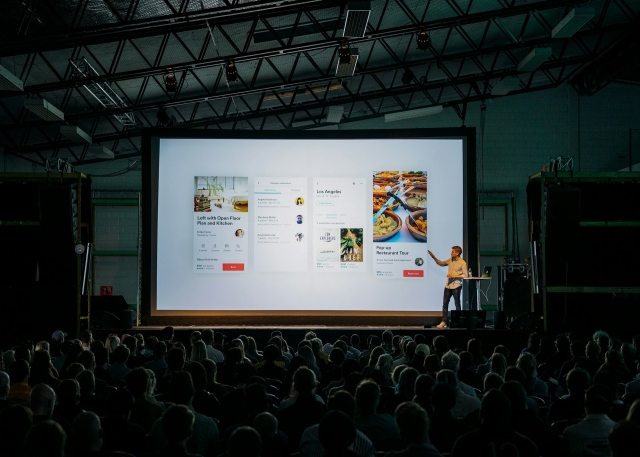Organizing a corporate event can be stressful, especially when deadlines are tight and expectations are high. Whether you're preparing a quarterly meeting, client workshop, or team-building retreat, success depends on careful coordination and active decision-making.
The ultimate goal is always a seamless experience, which must reflect well on your brand. It should also leave attendees feeling energized and connected. The secret to successful rapid planning is ruthless prioritization. You must focus especially on critical elements like presentation quality.
One of the first things to secure is your technical setup. Reliable AV solutions for corporate events ensure that presentations, discussions, and live interactions run smoothly without last-minute technical hiccups.
Once that's handled, you can focus on what matters most: managing an event that feels polished, purposeful, and stress-free, even with limited time.
Prioritize “Must-Haves” Before Nice-to-Haves
When time is short, start by identifying your must-haves. Create a simple list and divide items into three categories: essential, negotiable, and optional.
Essentials include your venue, agenda, and equipment setup. Negotiables might be decor or catering upgrades. Optional items can involve branding touches, such as printed materials or custom signage.
Focus on essentials first to avoid unnecessary last-minute stress. This approach ensures that even if small details slip through, your event still runs on time and on purpose. If you're managing multiple stakeholders, share this list in advance. It helps everyone understand trade-offs and prevents confusion.
You can also use online project boards, like Trello or Asana, to keep priorities visible to your team. It helps everyone understand trade-offs and prevents confusion. This essential planning should reflect the current industry needs. For instance, Mordor Intelligence reveals that conferences and seminars accounted for 32% of the corporate events space in 2024.
Product launches are rising fastest, with a 15.4% CAGR. Likewise, hybrid formats are also expanding annually at 18.2%, underscoring the growing role of technology services in modern corporate events.
Remember, the goal isn't perfection; it's seamless execution. Guests rarely notice what's missing, but they do notice when things go off track. Once your core needs are clear, the next step is organizing them efficiently using templates and smart tools.
Use Trusted Templates and Time-Saving Tools
Templates are your best friend when you're pressed for time. Start by saving a copy of your previous event's checklist or itinerary.
You can reuse sections such as registration, scheduling, and communication templates. Then, adjust for your current event's size and goals. Event management software can also save you hours. According to TechRadar, tools like Cvent, Eventbrite, or Whova enable you to handle registrations, send automated reminders, and track attendance. They also integrate calendars and task lists so your team stays aligned.
Eventbrite supports social media promotion and real-time analytics. Eventsforce helps automate scheduling and maintains strong data compliance, while Bizzabo provides an all-in-one control center for sponsors, ticketing, and engagement.
Ticketbud simplifies ticketing and gives clear performance reports. These platforms are designed to help you plan efficiently and make better decisions. Flexibility is the key to long-term success. Strong templates and adaptable structures allow teams to respond quickly to sudden changes.
That flexibility is vital when you're racing against the clock. When using digital tools, test them early. Log in from various devices and ensure your permissions and notifications are set correctly. Small checks prevent big surprises later.
Simplify Vendor and Tech Coordination
When multiple vendors are involved, communicating can quickly become messy. The best way to handle this is by streamlining. Pick vendors who can handle multiple services.
For example, some event companies can provide both staging and lighting, which reduces the number of moving parts and emails. For maximum efficiency, consider hiring comprehensive consulting service providers. According to Avanti Productions, these experts deliver methodical and functional solutions to help you handle challenges and strengthen your event processes.
Technology deserves its own attention. Schedule an early walk-through with your tech team. Check microphones, speakers, displays, and backup equipment. Have spares ready; extra cables, adapters, or batteries can save your day. If you're hosting a hybrid event, test your internet speed and streaming tools at the same time of day your event will occur.
The corporate event industry is evolving rapidly. An Allied Analytics report estimates that the U.S. corporate event market will surpass $510 billion by 2030, growing at over 17.3% annually. This shows that companies continue to prioritize well-executed events despite tighter budgets and schedules.
Staying organized with tech and vendor management helps you meet those rising standards. Once you finalize the vendors and technical details, the final step is ensuring smooth execution through rehearsal and real-time coordination.
Rehearse, Test, Improve, and Communicate Continuously
Even with careful planning, real-world execution can reveal small issues. That's why rehearsals are non-negotiable. If your schedule allows, run a full test a few hours before the event or the day before, if possible. Walk through the entire sequence, from check-in to closing remarks.
Run all technical elements in real time: microphone handovers, slide transitions, and lighting cues. Fix timing gaps or awkward pauses. Ensure that all speakers know their positions, where to look, and when to move. Create a short event-day guide with time slots and backup contacts.
Send it to everyone involved: the hosts, vendors, and support staff. Clear communication reduces stress and confusion. If an issue arises during the event, designate a tech or support lead who can troubleshoot quietly. This prevents disruptions while maintaining a professional and calm atmosphere.
According to Inc., the best event teams stay flexible and responsive during execution. Encourage staff to make quick, informed decisions when challenges arise. Centralized communication helps keep everyone aligned, while defined roles prevent overlap or confusion.
After the event, gather structured feedback from attendees and your team. Reviewing this input together helps refine your process for future events. Finally, capture notes right after the event ends. Record what worked and what didn't. That feedback will save you even more time next time you plan under pressure.
Commonly Asked Questions
1. How soon should you start planning a company event?
You should ideally begin planning at least 3–4 months for mid-size company events. If time is limited, start by locking down your venue and technical setup first. Then, assign small, focused teams to handle logistics in parallel. This staggered method keeps planning efficient even under pressure.
2. How to secure a high-quality event venue quickly on short notice?
Focus on flexibility and leverage your network. Instead of only searching traditional sites, reach out to your personal connections for available or unique spaces. If possible, commit to multiple tentative dates, as this gives you leverage and often unlocks better availability and rates at the last minute.
3. How can technology improve event attendee engagement?
Technology can transform passive attendees into active participants. Mobile apps enable instant feedback and live polls, while LED screens and immersive sound keep sessions dynamic. Even minor upgrades, such as live captioning or smart check-ins, create a smoother, more interactive experience that helps attendees stay engaged.
Tight schedules don't have to mean chaotic events. By setting clear priorities, reusing proven templates, simplifying vendor communication, and rehearsing thoroughly, you can deliver events that feel effortless to your audience.
Every well-run event starts with structure, not luck. If you plan early, communicate clearly, and trust the process, you'll find that even last-minute arrangements can look and feel seamless. With each experience, your process becomes smoother, and so does your next event.






